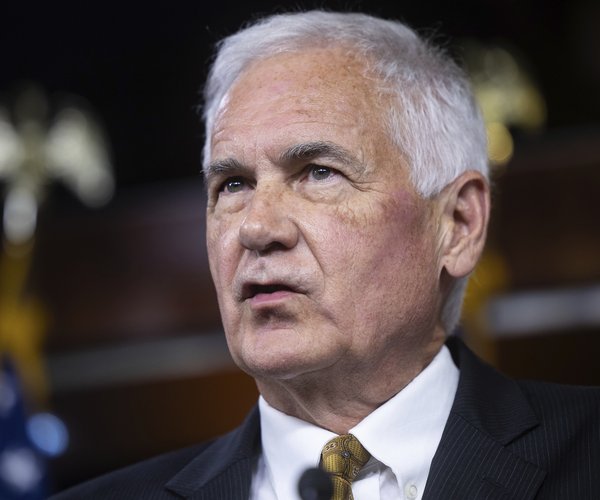Dr. Kevin Murphy believes he can help Turlock’s public safety employees become more alert on the job, sleep better and improve their overall performance. How can he do this? Through his therapeutic program, Personalized repetitive Transcranial Magnetic Stimulation (PrTMS).
In April the Council was set to consider approving a $642,500 contract with Genesis Behavior Center for PrTMS to be offered to Turlock’s public safety personnel. The Council decided to table the item for a later date. On Monday, Murphy came to Turlock to present his innovative program to the public ahead of the Council reconsidering approving the treatment at a September meeting.
“What we see is improved sleep, less anxiety, performing better, feeling better, not self-medicating, not needing to self-medicate…You want your first responders performing better, making good decisions, having sleep to serve the community,” said Murphy about the benefits of his program.
According to city staff, the peaks of the COVID-19 pandemic proved especially challenging for city staff, and most notably for police and fire department personnel, with the additional demands and stresses placed upon the personnel in those departments.
Murphy, a board-certified radiation oncologist who specializes in treating brain tumors, said he started this treatment for his son who has autism. Six months after treatment with PrTMS, Murphy said his son went from being mostly nonverbal with no eye contact and poor fine motor skills to being able to look him in the eye and say, “I love you.” While he is most impassioned about his work with kids with autism, Murphy also has eight years of experience treating active military and veterans using PrTMS, along with performers and athletes.
Instead of medication, which Murphy said is the alternative treatment to a lot of the issues first responders have seen since COVID-19, his treatment sends a micro-current of electricity down through the skull into the brain in an effort to “tune” brainwaves to an alpha state — a medium-frequency pattern of brain activity associated with restful and meditative states.
Murphy said that while the treatment is similar to electroconvulsive (or electroshock) therapy used to relieve symptoms of some mental health problems, PrTMS uses a far less intense voltage to “tune” brainwaves rather than “jumpstart” them.
With PrTMS, a patient undergoes a functional measurement process that evaluates a person’s brain function. Then a personalized treatment plan is designed to restore brain wave synchronicity thus enhancing brain performance. PrTMS is delivered according to this personalized treatment plan. Ideally, an individual undertakes the sessions five days per week. Sessions typically last anywhere from 20 to 45 minutes. A typical individual may undertake 30 sessions to obtain an optimal outcome, although others may undertake up to 60 sessions.
PrTMS is offered at 45 locations across the country, including 15 in California. Murphy said approximately 50 patients at Genesis Behavior Center in Modesto have already started PrTMS treatment, but if approved, Turlock would be the first local government organization to offer it to its employees.
If approved, this program would be funded by American Rescue Plan Act funds.





